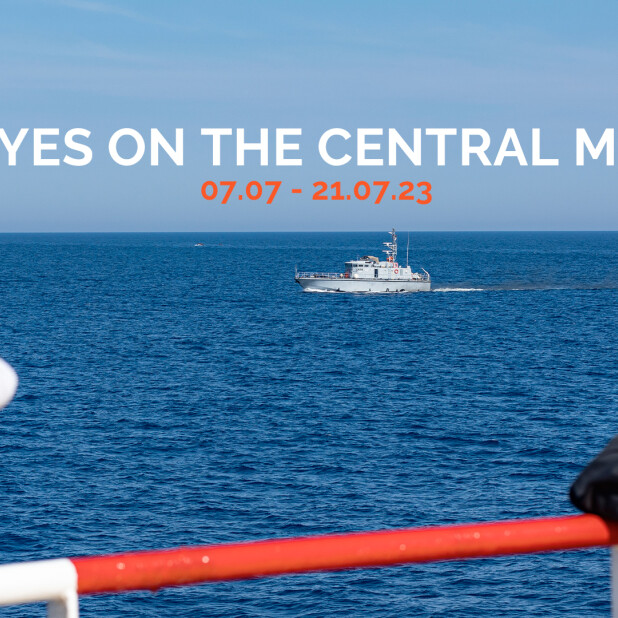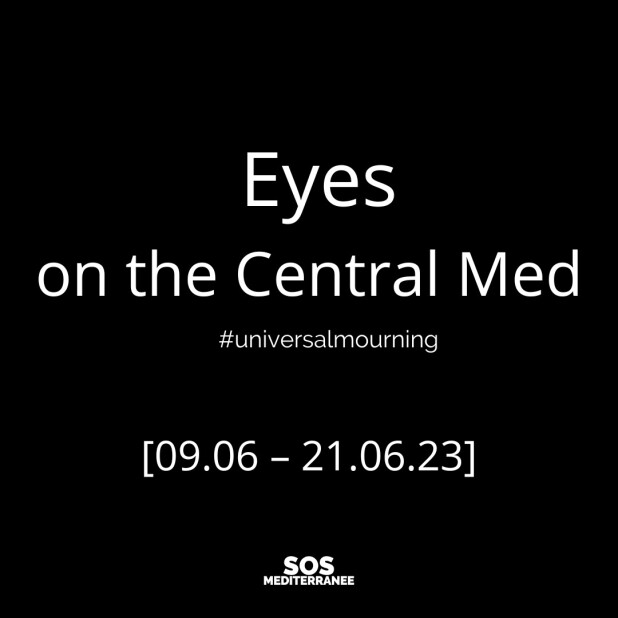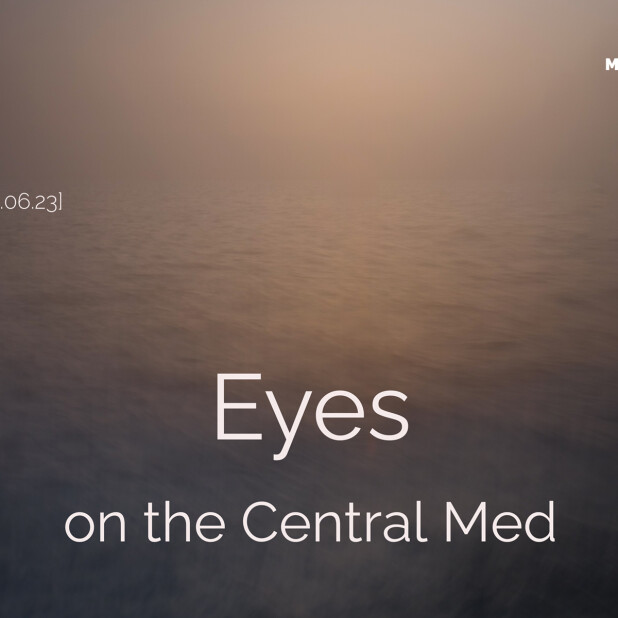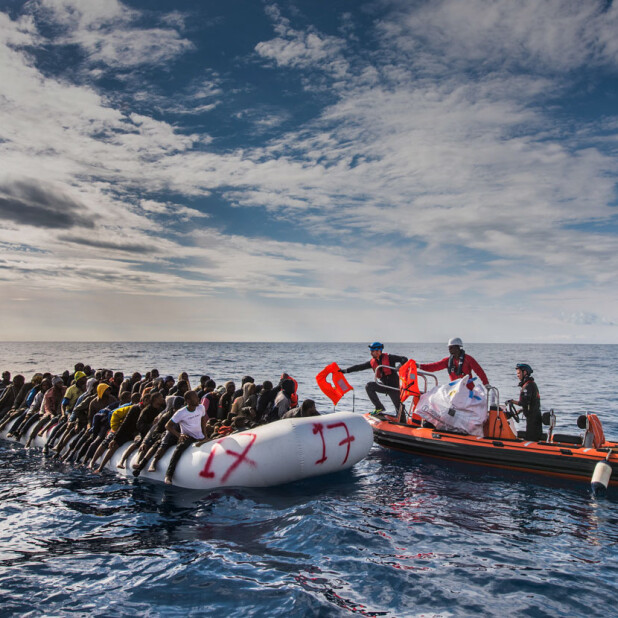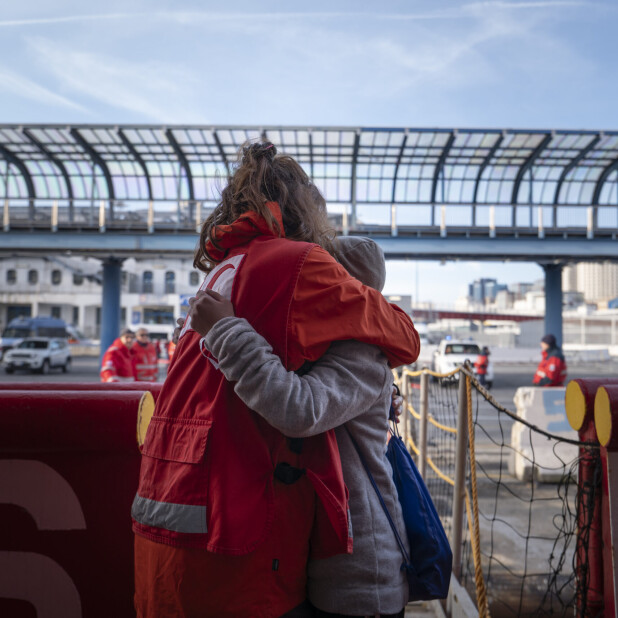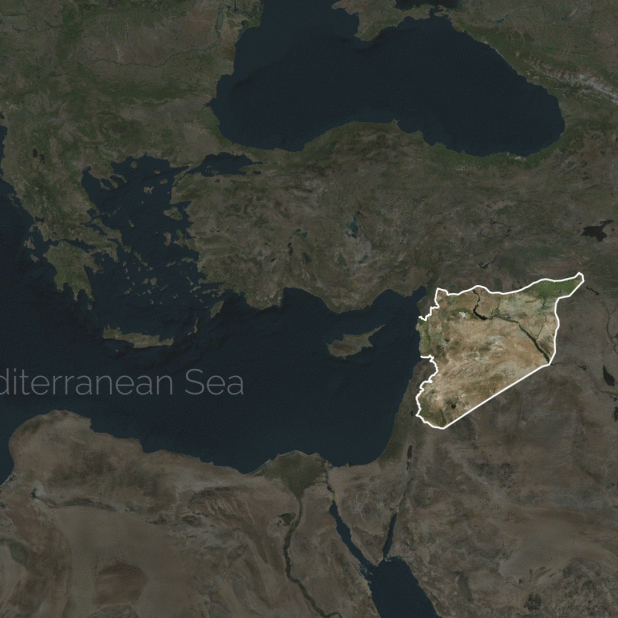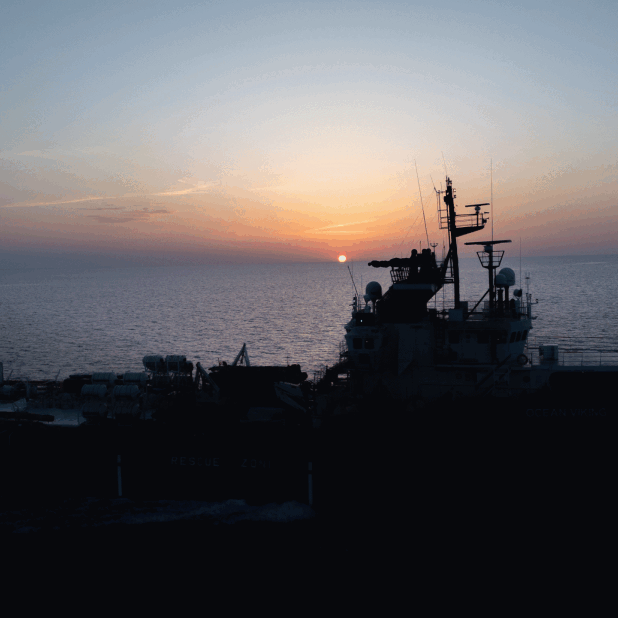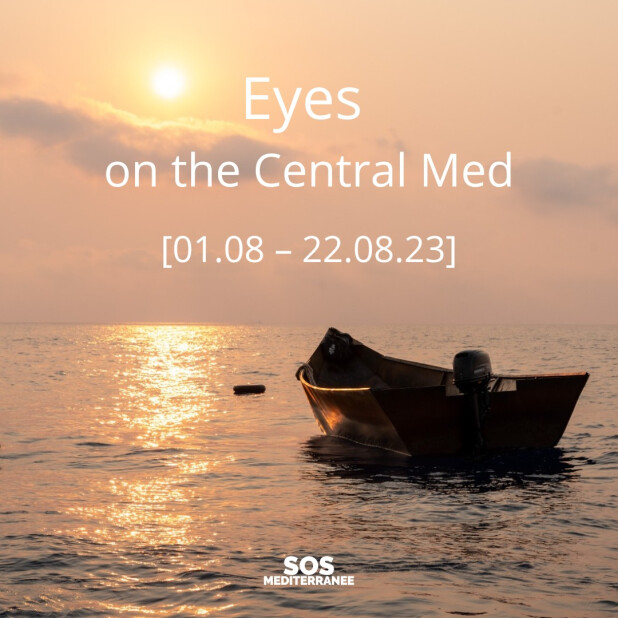
[28.03 – 12.04.23] The following publication by SOS MEDITERRANEE intends to shed light on events which unfolded in the central Mediterranean in the past weeks. It is not intended to be exhaustive, but rather to provide a general update on maritime search-and-rescue-related matters occurring in the area we have been operating in since 2016, based on public reports by different NGOs, international organisations and the international press.
Large fishing vessel with 400 people in distress rescued by NGO ship
On April 1, Ocean Viking evacuated 92 shipwrecked persons from a rubber boat in distress in the Libyan Search and Rescue Region. Salerno, Italy, was assigned as a place of safety shortly after. All survivors disembarked on April 4.
On March 29, Geo Barents of the NGO Médecins Sans Frontières (MSF) left the port of Bari, Italy, towards the area of operations. On April 4, the crew performed a 11-hour rescue operation of a large fishing vessel with 440 people onboard. The survivors reported to have been at sea for four days amidst stormy sea and strong winds, two days without food or water, before eventually being evacuated by the Geo Barents team. Shortly after the rescue, a person who was found unconscious on the boat in distress had to be medically evacuated by helicopter. Riccardo Gatti, Geo Barents head of mission, reported that “It was the most difficult rescue [he has] I ever taken part in”. He further explained that Geo Barents repeatedly asked for instructions from the competent maritime authorities but that none was given. Two merchant ships were in the vicinity of the boat in distress, but MSF explained that they were not prepared to carry out such a complex operation. Following the evacuation of the shipwrecked people onto Geo Barents, the Italian authorities instructed MSF to transship 100 survivors onto an Italian naval asset off Sicily while the 339 remaining survivors were to be disembarked in Brindisi, Italy. The 100 survivors were transshipped on April 5 while the 339 others disembarked on April 7.
On April 7, Louise Michel submitted an appeal against the detention of the ship instructed by Italian authorities on March 26.
On April 6, the sailing ship Nadir of the SAR NGO ResQship left towards the area of operations. The day after, the crew assisted a wooden boat in distress spotted by the aircraft Seabird 2 of the NGO Sea-Watch. The 60 shipwrecked people were eventually rescued by the Italian Coast Guard. On April 8, the crew reported to have assisted six boats in distress, with around 220 shipwrecked persons in total onboard. Sadly, one person died during one operation. All boats were eventually rescued by the Italian Coast Guard. The day after, on April 9, Nadir performed a critical rescue where 25 people were in the water as the crew arrived on the scene. The crew could recover 22 persons and two bodies. The survivors reported that at least 20 other people drowned.
Deadliest months in the central Mediterranean since 2017,UN call for EU States coordination and end of criminalisation of NGO ships
In addition of the deceased persons reported by Nadir, Easter was once more deadly in the central Mediterranean. On April 8, at least 23 persons went missing after two boats sank off the coast of Tunisia. Four bodies were also recovered off Sfax that day by the Tunisian Coast Guard. Overall, between April 7 and April 10, at least 38 people drowned. Another 18 people remain missing. On April 12, 10 bodies were also recovered by the Tunisian Coast Guard while 20 to 30 people are still missing.
On April 12, the International Organisation for Migrations (IOM) published a press release raising the alarm that the first quarter of 2023 is the deadliest in the central Mediterranean since 2017. The IOM further underlines that “the increasing loss of life on the world’s most dangerous maritime crossing comes amidst reports of delays in State-led rescue responses and hindrance to the operations of NGO search and rescue (SAR) vessels in the central Mediterranean.” The UN documented that in six cases, delays in State-led rescues lead to the deaths of at least 127 people while the complete absence of response to a seventh case claimed the lives of at least 73 people. The press release also calls for States to support the “efforts of NGO actors to provide lifesaving assistance” and to end with the criminalisation of such lifesaving work.
Italy declared a State of Emergency amidst sudden increase of sea arrivals
Over 3,000 people were rescued by the Italian Coast Guard over the Easter weekend according to Infomigrants. Fishing vessels carrying up to 800 persons were found in distress before eventually been rescued by the Italian maritime authorities. Some of the boats reported to have been at sea for days before being rescued. According to civil hotline Alarm Phone, a boat in distress in the Maltese Search and Rescue Region with approximately 400 people onboard was left alone by the Maltese authorities, who didn’t intervene to assist the boat as requested per maritime law. The boat was eventually assisted by the Italian Coast Guard.
On April 11, Italian ministers have called a state of emergency in response to the surge of arrivals. Sea and Civil Protection Minister Nello Musumeci said that the number of arrivals was an “absolute emergency” that had put Italy’s infrastructure at risk. “We are talking about a phenomenon never seen in the past. The islands alone cannot deal with this state of emergency”. The measure, supported by an initial loan of 5 million euros, will last for 6 months. The Minister further underlined that the state of emergency would not solve the problem as it required a responsible intervention by the European Union.
In the meantime, on March 30, the European Court of Human Rights condemned Italy for the “degrading treatment” of four migrants on the island of Lampedusa, for detention without a clear legal basis, and for “collective expulsion” without individual assessment. On April 4, 15 people were arrested in Calabria for alleged human trafficking which represent the first application of the so-called “Cutro decree” presented on March 9 by the Meloni government, which introduces a 20 to 30 years prison sentence for people charged with human trafficking. In light of this, lawyer Gianfranco Schiavone – a member of the Association for Legal Studies on Immigration (Asgi) – explained that “often the people arrested as boat drivers are the same migrants who made the journey, who are also placed in the driver’s seat under blackmail. Those who organise the journey are unlikely to get on board. So these people end up being charged with very serious crimes while the real smuggler gets away scot-free”.
Interceptions continue while the Council of Europe calls on European states to put an end to unlawful pushback practices
Between March 26 and April 1, 344 people were forcibly returned to Libya by the Libyan Coast Guard according to the IOM.
According to the Tunisian Coast Guard, over 14,000 were returned to Tunisia following an attempt to flee via the sea in 501 operations. The data are “five times higher” than the same period last year. It is said that most of the operations happened off Sfax and off Mahdia.
On March 30, the Council of Europe’s Committee for the Prevention of Torture and Inhuman or Degrading Treatment or Punishment (CPT) has published a report calling on “European states to put an end to unlawful pushback practices and the ill-treatment of foreign nationals deprived of their liberty in the context of forced removals at borders.”
Credit: Jérémie Lusseau / SOS MEDITERRANEE

